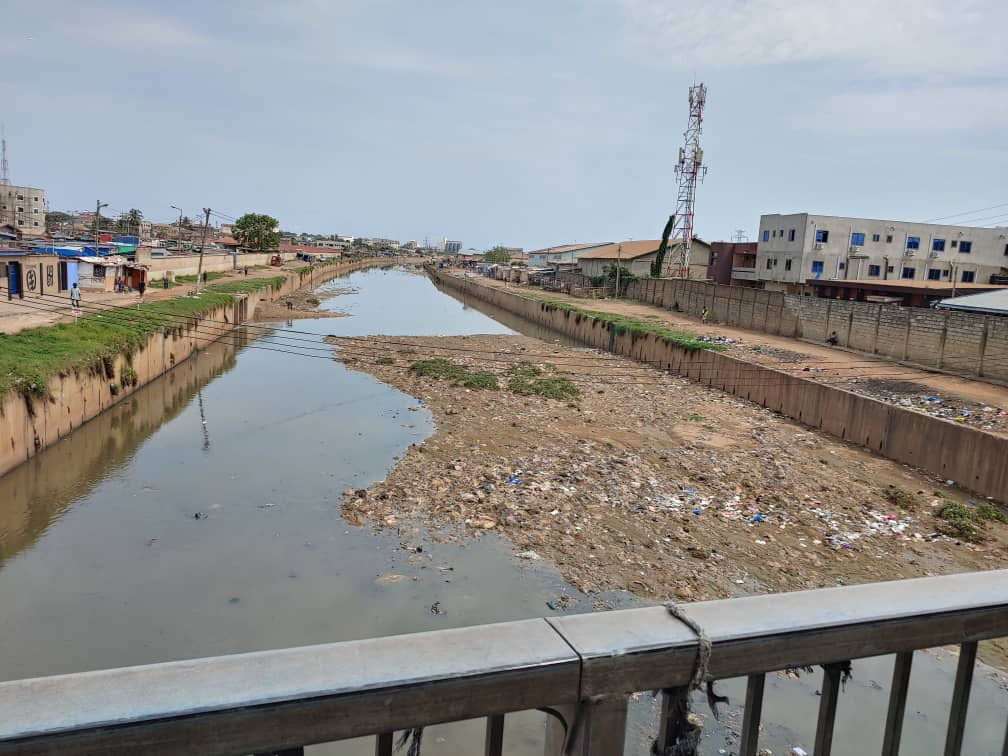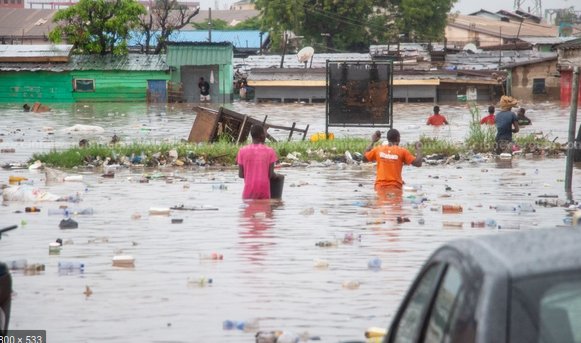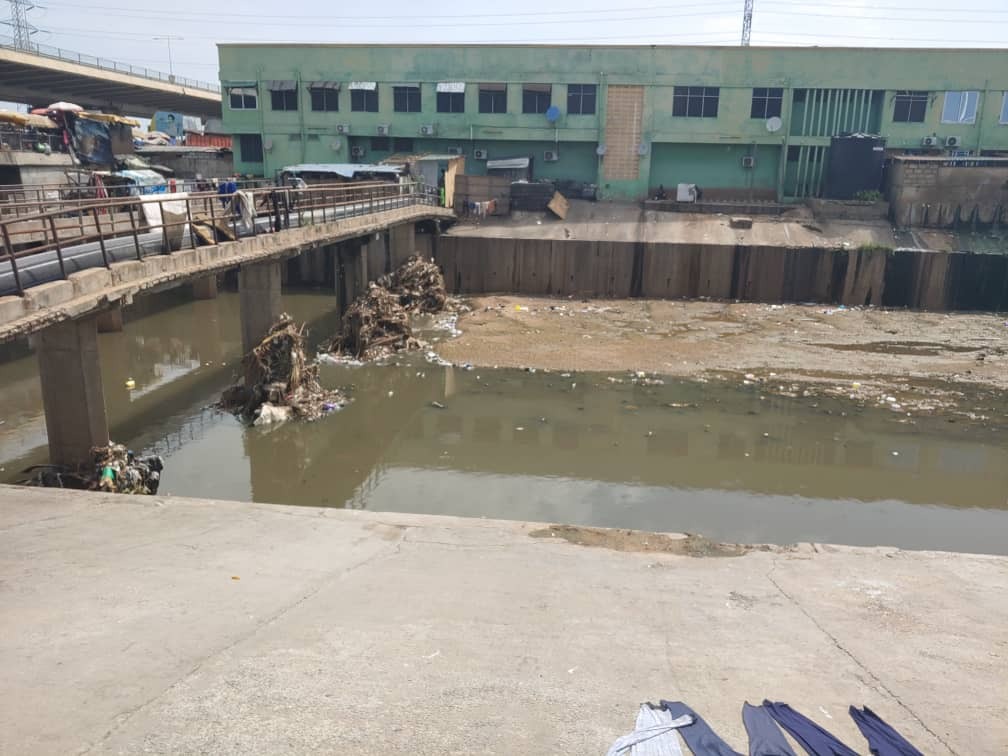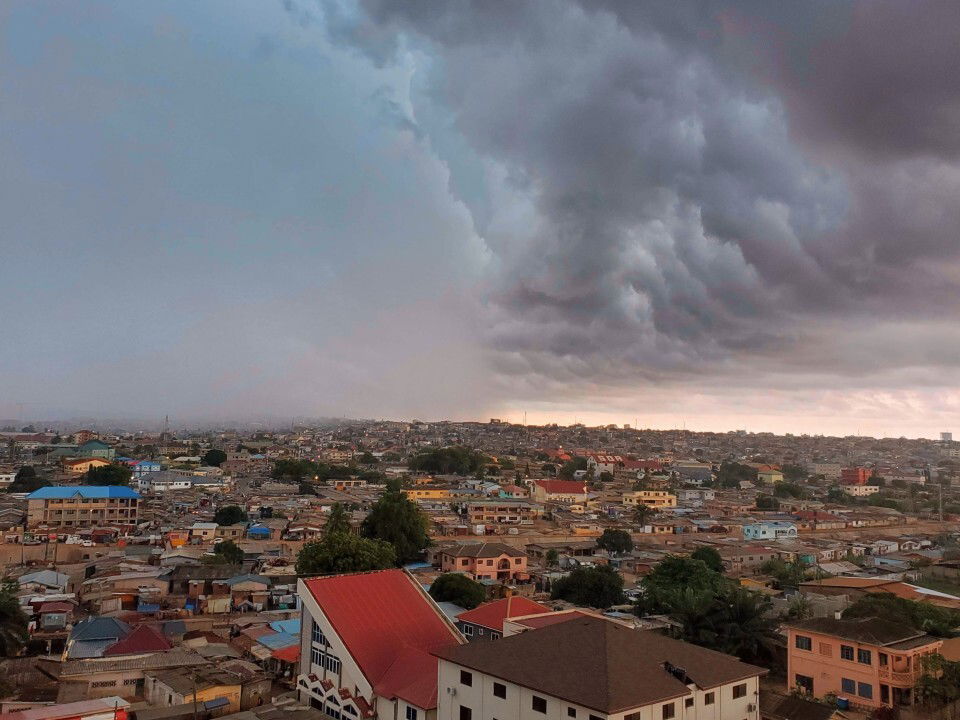
The rainy season is upon us here in Ghana and for the capital Accra, it remains a nightmare for many homes and communities. Circle and Kaneshie environs remain one of the communities with the highest records of flooding. This is because the drainage systems are blocked and choked with sand, food waste, and mostly plastic. In the year 2015, specifically on June 3, floods wreaked a major disaster around the circle/asylum down. Many lives were lost and houses were displaced. According to the Ghana Meteorological Agency, anytime Accra experiences above 50 millimeters of rain, there will be flooding. Most recently, torrents of rain falling in the capital alone are around 70-80 millimeters. This is according to the GMAT.
Silas Tetteh has lived in Kaneshie for the most part of his life as a student, worker, and father., Mr. Tetteh has experienced about 10 severe floods in his lifetime and he attributes it to dirty culture”. “When we were young, there was the town council which enforced cleanliness. No one would dare leave rubbish in their gutters and major drainages to get choked at another’s house. “Now I fear for my two children who have to relocate to an aunties house in Dansoman anytime it rains. I try to tell them to speak to the assembly members to organize cleaning sessions in the community but to no avail”. His son Eli is a young banker but he has this to say “The MP of the area is not thoughtful at all. He has never organized a clean-up session. The biggest drains here have been choked for months now. What do you do? We vote this government out.

According to Salamatu, her food stand here is conditional thus, she doesn’t see the responsibility to be cleaning these covered gutters. expects the city response team to sweep and clean the streets and gutters. She however recounts having to stay home due to news of flooding basically for her safety. Her five-year-old daughter would also stay home with her. Okraku a 27 year old owns a fitting shop in Kaneshie that has operated in the vicinity for over a decade. He says “There aren’t dustbins at vantage points.” Whose duty is that? It can't be mine, cos we pay taxes, and our, MP and the sanitation minister must use our monies wisely”. He however recalls losing a good friend to the disaster that happened at Kwame Nkrumah Circle in 2015. He believes the sanitation minister should be brought to book. Both Salamatu and Okraku are occasionally affected by floods in the areas where they work for a livelihood but they do not see a reason to take up responsibility to change their community. The National Disaster Management Organisation (NADMO) is the organization mandated to handle the aftermath of floods concerning mitigating negative impacts and offering temporal solutions for relief. It is a gov’t agency. Over the years, NADMO has distributed items such as mattresses, pillows, and items needed to salvage flood situations across the country. For most of the disasters, the NADMO says it's caused by poor drainage and waste disposal. According to the Public Relations Officer of the National Disaster Management Organization, the most known causes of flooding in Accra however are choked gutters, poor drainage and sewerage systems, and the absence of gutters. His piece of caution” We spend less in preventing disasters than mitigating its effects.
A group made up of about 8 young men aged 22-30 years is however spearheading the community change with a sole mission to cause change in their small ways by clearing gutters, drainages, segregating plastics, and more. Since their inception about a year ago, the prime communities they have embarked on have largely seen improvement in the effects of flooding. Their mission is to create environmental awareness in society. One of them Safo” says he has observed “Ghanaians attribute everything to the govt but I beg to differ that every change must come from the gov’t”. They say they have evidence of significant improvement in drainages, walkways, avoidable accidents, and even mindset change. “In December 2023, we cleaned Kaneshie environs before the festive season and in January we noticed a young man gathering youth to do Saturday exercise sessions coupled with cleanups. When we see this, we know we have left footprints of change”. The aftermath of floods leaves children, and young people in so much risk, danger, and loss. NADMO says, most young people have to stay home and take care of older persons to safety. Schools and work have to be stalled due to floods. When climate mobility happens, young people bear the biggest brunt of it, there isn’t a much better time for young people to take up the mantle of environmental responsibilities. Ghana’s population stands at over 34 million with 38% of youth and 35 % of children. Will this group of young men challenge and unearth a new wave of community cleaning services? Could this be the development the capital city of Accra is yearning for? Also, power will eventually fall into the hands of the people just like Abraham Lincoln defined democracy. Power by the people, to the people, and for the people. This is the beginning of a lasting change in climate solutions and development.

